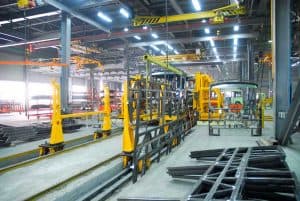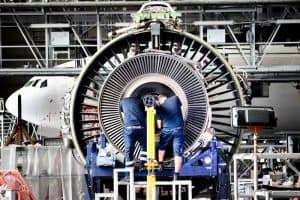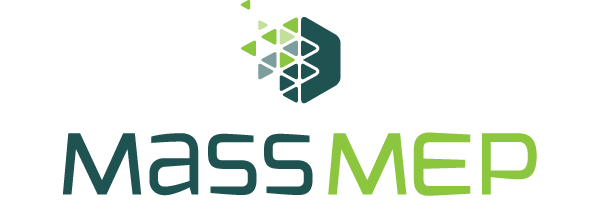Quality management systems (QMSs) provide a basic structure to ensure that your systems adhere to standards or technical specifications. These standards can be required by customers, your industry, or may even be regulatory requirements.
We offer customized ISO trainings with on-site assessments and implementation services in all ISO standards.
ISO 9001

This training will educate key process owners on the key characteristics, advantages, and impact of ISO9001. The entire standard will be presented a section at a time for proper understanding of the requirements, and what is required of the company to achieve registration.. The employees will learn about Quality Management System planning, implementing, reviewing, and improving the actions that we take to meet its customer requirements.
Phase 1:
Attendees will learn how to properly document a Quality Management System via a quality manual (including the company’s Quality Policy), procedures and flowcharts – ensuring compliance with ISO9001 requirements with the involvement from management.
Key processes from customer support to manufacturing, purchasing, engineering and others will be educated on how to document their processes as required by the standard.
Phase 2:
Learn how to properly document a Quality Management System via a quality manual, procedures, and flowcharts.
Phase 3:
Employees will learn the process to effectively implement a Quality Management System within the company. In addition, trainees will learn the critical components of effectively managing improvements and compliance of a Quality Management System.
Phase 4:
Employees will learn that Internal Quality Audits are not performed just because it’s a requirement for ISO, but that it can be a major driver for improvement within the company. A stronger company means more job stability and growth opportunities for them.
A group of employees will learn the skills necessary to conduct and complete internal quality audits. Employees will learn how to develop internal quality audit schedules, and audit plans with guidelines to address non-conformities, and most importantly how to document opportunities for improvement.
Phase 5:
Training will be provided to educate every employee on the location and use of the documentation for business effectiveness. The training will also address how to properly identify areas for possible improvement and the methods to use for addressing the issues for continued success of the system and the organization.
ISO 13485

ISO 13485 is a set of standardized requirements for Quality Management System development, documentation, training, and implementation for companies looking to comply with Medical Device industry QMS requirements.
Phase 1:
The entire standard will be presented a section at a time for proper understanding of the requirements, and what is required of the company to achieve registration. The employees will learn why ISO is needed, and what it means to be ISO registered as well as the benefits of being registered, and how to maintain registration for long-term success and competitiveness.
The employees will learn about Quality Management System planning, implementing, reviewing, and improving the actions that we take to meet its customer requirements.
Phase 2:
Attendees will learn what documentation requirements exist and how to properly document a QMS via a quality manual, procedures, work instructions and forms, assuring compliance with the standards.
Phase 3:
Employees will learn that Internal Quality Audits are not performed just because it’s a requirement for ISO, but that it can be a major driver for improvement within the company. A stronger company means more job stability and growth opportunities for them.
A group of employees will learn the skills necessary to conduct and complete internal quality audits. Employees will learn how to develop internal quality audit schedules, and audit plans with guidelines to address non-conformities, and most importantly how to document opportunities for improvement.
Phase 4:
Employees will learn that Internal Quality Audits are not performed just because it’s a requirement for ISO, but that it can be a major driver for improvement within the company. A stronger company means more job stability and growth opportunities for them.
A group of employees will learn the skills necessary to conduct and complete internal quality audits. Employees will learn how to develop internal quality audit schedules, and audit plans with guidelines to address non-conformities, and most importantly how to document opportunities for improvement.
Phase 5:
Inform/train remaining employees on what the quality management system is composed of, where the system documentation is located, how to get access to the documentation and how to use them for maximized benefit to the organization. Learn methods for improving the system, learn how to be audited in an effective way by customer’s, registration bodies and internal auditors.
The training will address how to Apply suitable methods for monitoring and, where applicable, measurement of the quality management system processes. How to determine, collect and analyze appropriate data to demonstrate the suitability and effectiveness of the quality management system and to evaluate where continual improvement of the effectiveness of the quality management system can be made.
AS 9100

AS 9100 is a set of standardized requirements for Quality Management System development, documentation, training, and implementation for companies that wish to comply with Aerospace Industry QMS requirements.
Phase 1 Rev D:
This training will educate all employees on the key characteristics, advantages, and impact of the AS9100C Quality Management System (QMS). Upon completion of the training, each employee will have a comprehensive understanding of quality and continuous improvement. And most importantly, they will understand how all of their actions contribute (either positively or negatively) to the bottom line of the company.
Phase 2 Rev D:
Development of an ISO compliant system by addressing specific items needed for registration and more importantly by the company for success.
Phase 3 Rev D:
Learn to properly implement all phase 2 items over a training period in segments to assure success. Learn how to perform a Gap Analysis, Readiness Review to assure successful registration. Also, how to use context, risk based thinking, documented information, manage continual improvement, and compliance.
Phase 4 Rev D:
The basis for this training is to perform ISO 19011 auditor training to help trainees develop their own internal capability to perform Internal Quality Audits as required per AS 9100.
Phase 5 Rev D:
Inform/train remaining employees on what the quality management system is composed of, where the system documentation is located, how to get access to the documentation and how to use them for maximize benefit to the organization.
ISO 14001

This training will educate all employees on the key characteristics, advantages, and impact of the ISO14001:2015 EMS. The entire standard will be presented a section at a time for proper understanding of the requirements and what is required of the company to achieve registration. Learn about EMS planning, implementing, reviewing, and improving the actions that we take to meet its environmental obligations. Learn about the Environmental regulations and how to cut waste and use of natural resources more efficiently to reduce costs and boost profits while keeping up with statutory and regulatory requirements.
Phase 1:
Principles of an Environmental Management System – ISO 14001 determines what ISO is and its origin, ISO 9000 standards and how to get benefits from ISO 14001, as well as clause explanation and requirements.
Phase 2:
Having learned about ISO, we will train towards the Development of an ISO compliant system by addressing specific items needed for registration and more importantly by the company for success. These items are paced over time.
Phase 3:
Learn to properly implement all phase 2 items over training period in segments to assure success. Learn how to identify the Environmental Aspects how to identify the Environmental objectives how to implement an Emergency preparedness and response, Readiness Review to assure successful registration.
Phase 4:
Employees will learn the skills necessary to conduct and complete internal EMS audits. Topics covered will be audit schedules/plans, methodology for conducting audits, reporting results for improvement and Continual Improvement. Learn how to audit; Environmental policy as a framework for planning and action, Environmental aspects/attributes of our products.
Phase 5
Inform/train remaining employees on what the environmental management system is composed of, where the system documentation is located, how to get access to the documentation and how to use them for maximized benefit to the organization.
Statistical Process Control

The Statistical Process Control curriculum includes basic statistics and their application for process control; variation, probability, normal distribution curve, standard deviation, and control chart variables.
What Our Clients Say
"The work we did with Rick and MassMEP was the catalyst for a long list of continuous improvement projects we've done. We have genuinely created a culture of innovation at Flexo Concepts and the work we did in manufacturing with Mass MEP was the foundation for much of the thinking and practices we use throughout the business to innovate and improve."
Greg Howell,
Flexo Concepts"The instructors were superb - extremely knowledgeable and very personable. They did an outstanding job. We haven’t as of yet fully realized the total benefit to be derived from the various classes."
Tom Brodeur,
K+K"This training was an essential part of changing the culture to a lean culture. It was very informative in helping to establish a core team of Lean Champions. Rick Budlong has an extensive knowledge in the training material as well as experience in manufacturing. He helped develop some of the process improvements that were initiated and led to cost savings. Nye will continue to use Mass Mep for future training."
